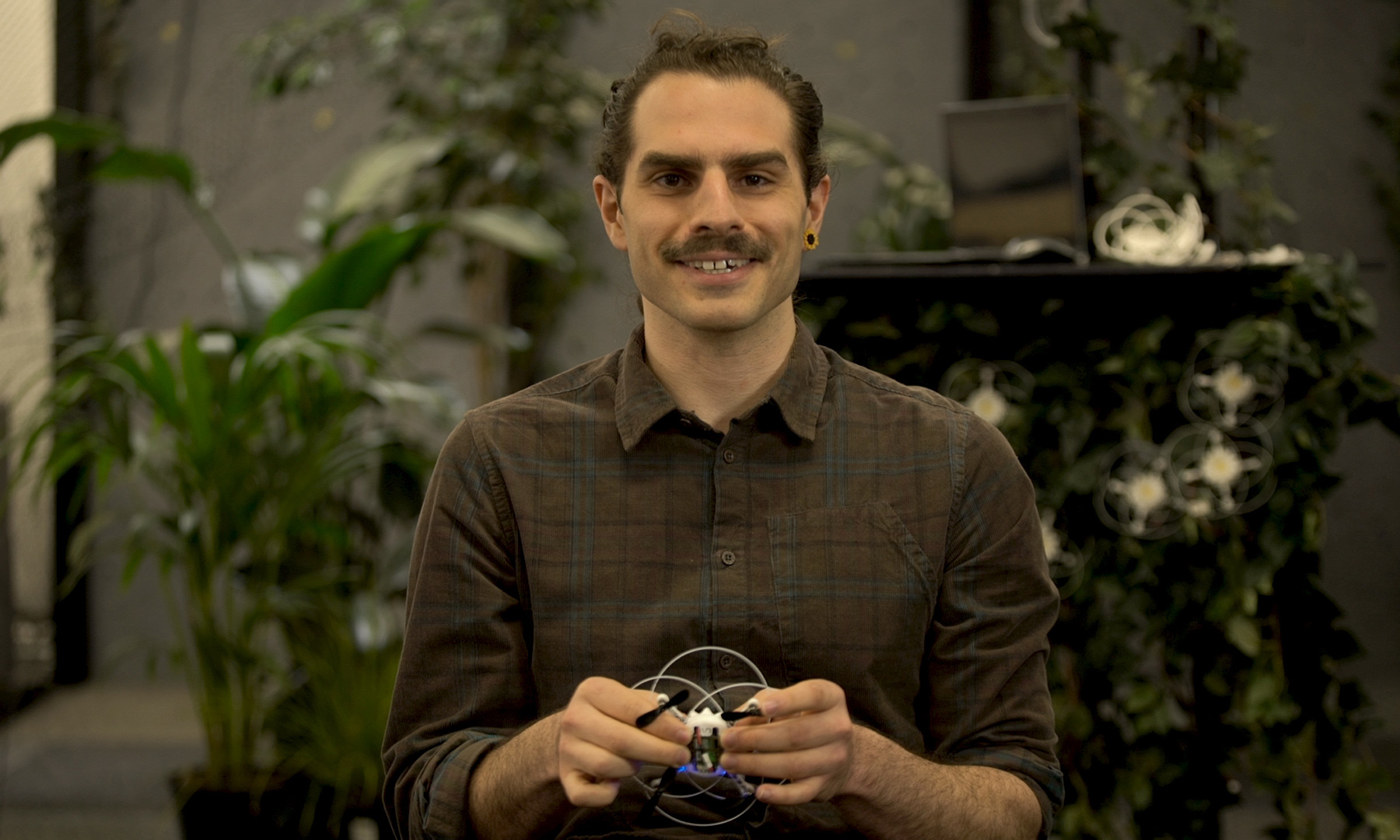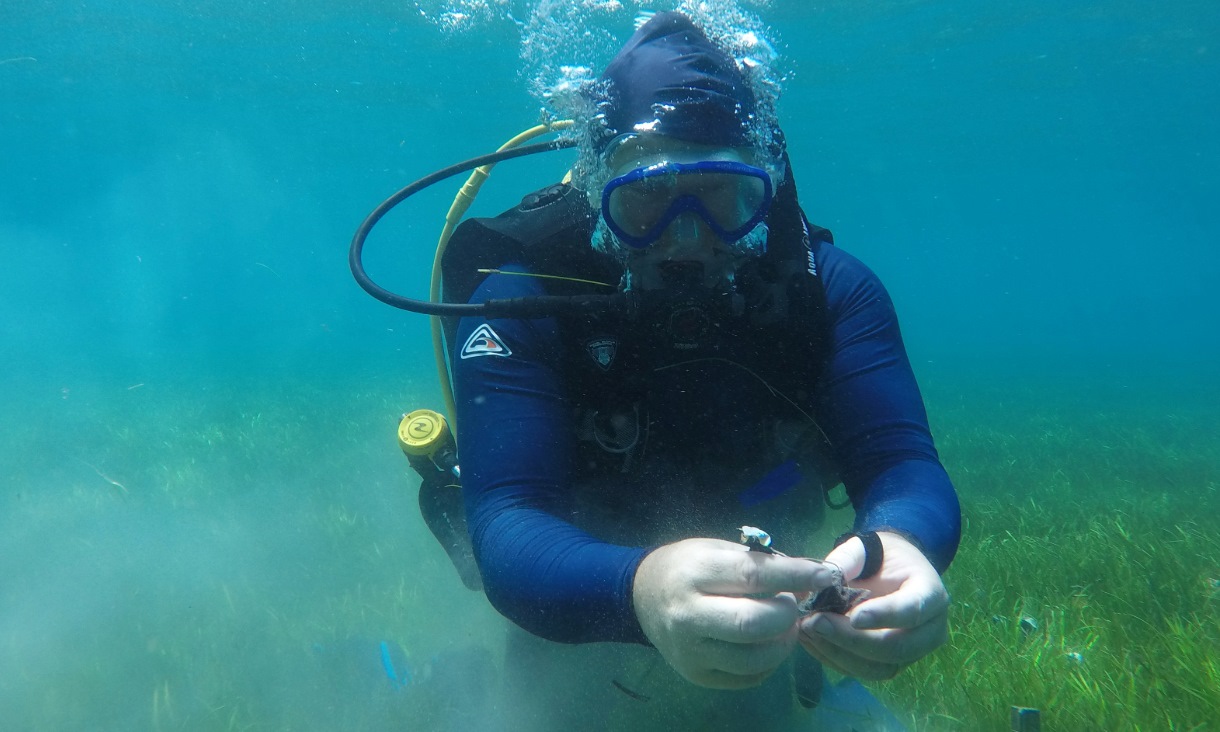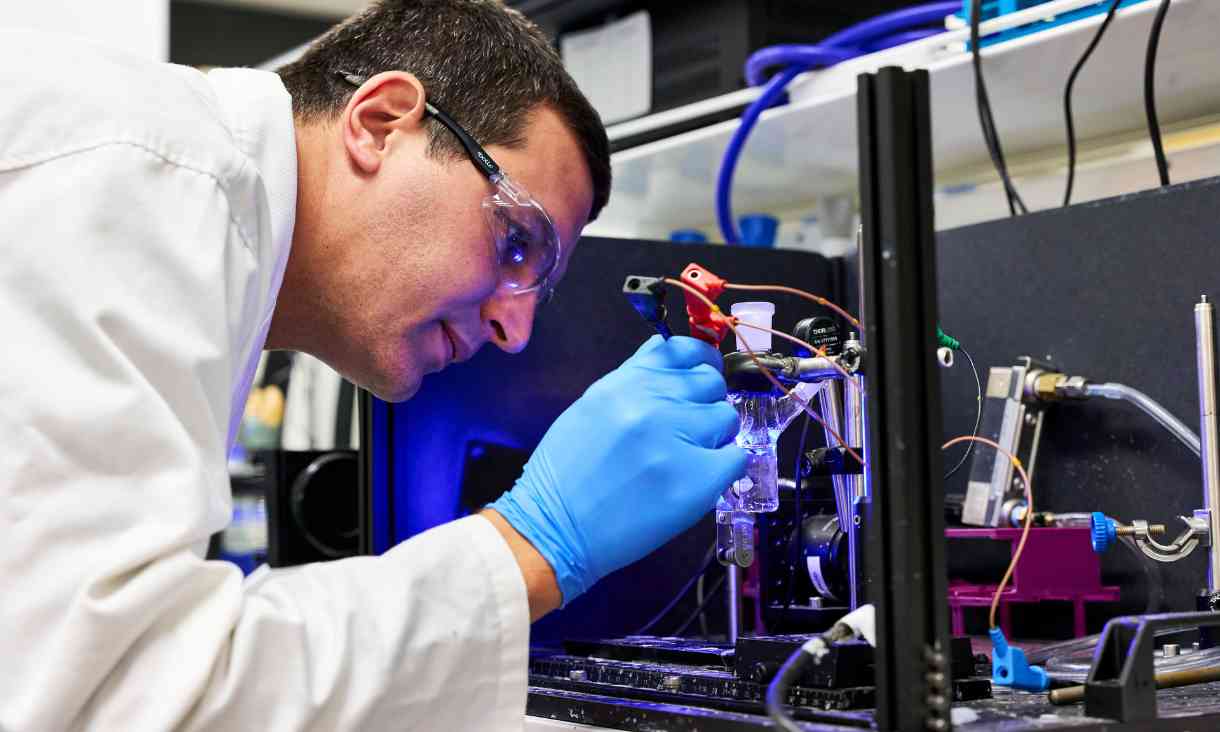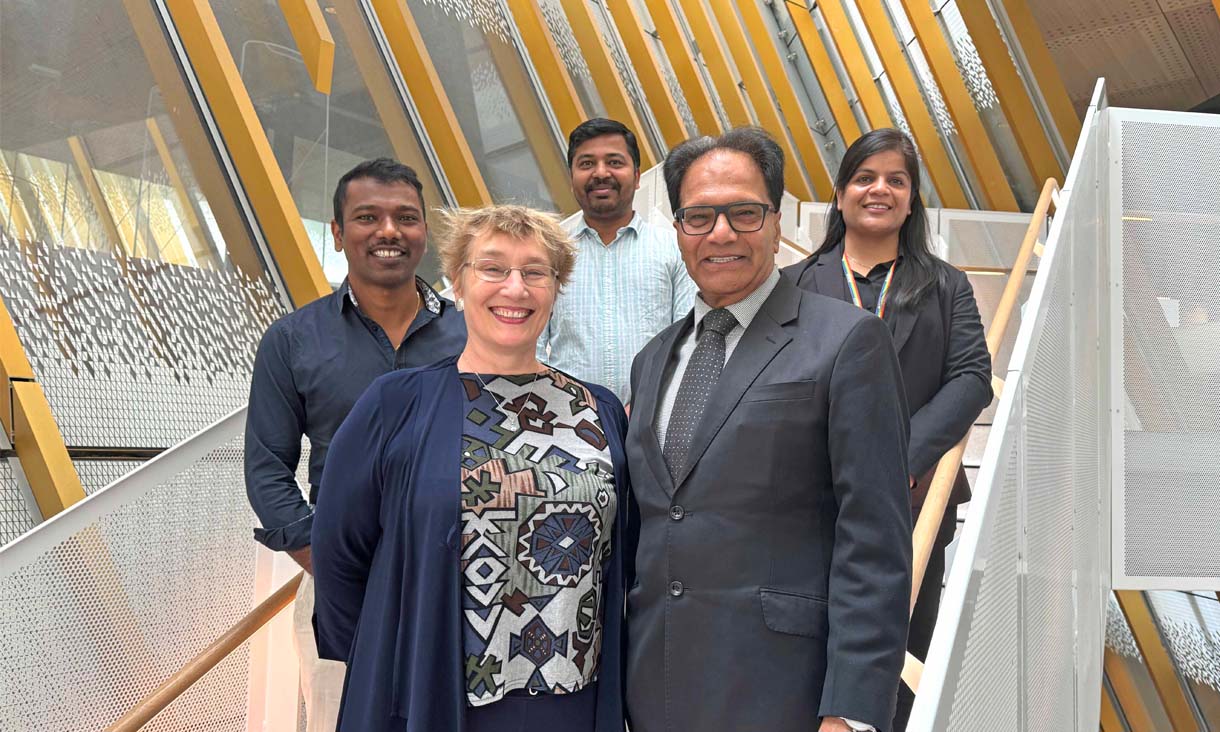“This means noticing things like the position of your hands, the movement of your shoulders and the pace of your breath,” he said.
“Rehabilitation is hard both physically and mentally, so the drone can provide motivation and guidance to do it while also allowing your physiotherapist or clinician to monitor your progress.”
DroneChi uses tiny controllers attached to the user’s hands to move a small drone around, with a movement mimicking Tai Chi and the physical action bringing meditation.
La Delfa drew on his experience in product design to engineer the lightweight drones, which mimic the form of a flower and have motion sensitive lights that change colour in relation to bodily movement.
“I wanted to create something that could be used solo, to give the user a time of peace and alert them to feelings they may have been unaware of,” La Delfa said.
"My passion lies in seeing how this can change people's lives.”
La Delfa said the use of drones in meditation practice could have multiple health-promoting applications, from falls risk assessment to physical rehabilitation.
“We’ve been talking to a physiotherapist and a falls-risk doctor from the Austin Hospital about applying the drone to a person in a physio setting, where the drone will guide the person towards being able to reflect on how their body is moving,” he said.
“At the moment we’re working towards an application of the drones that is unique to how the user moves.”
The drone technology could also help physiotherapists and clinicians assess the progression of a patient’s rehabilitation from afar, and in situations such as meditation classes where it can be difficult to read body language through a 2D video.
“We want to explore options for the drone to act as a guide in lockdown situations like we are experiencing now, where you can’t have a human presence to guide and motivate you,” La Delfa said.
“The drone could act as a physical, guiding presence, alerting users to their movements and provide immediate feedback they might not be able to sense themselves.”
DroneChi has already been picked up after successful trials as a key project by RMIT and CISCO’s Health Transformation Lab, which, embedded in RMIT’s Social Innovation Hub, brings together ideas, leaders, innovators and infrastructure to bring radical new solutions to our most pressing future healthcare issues.
Joe’s Drones premiered at Transitions Film Festival and has now been released on RMIT’s YouTube channel. View here.


.jpg)


